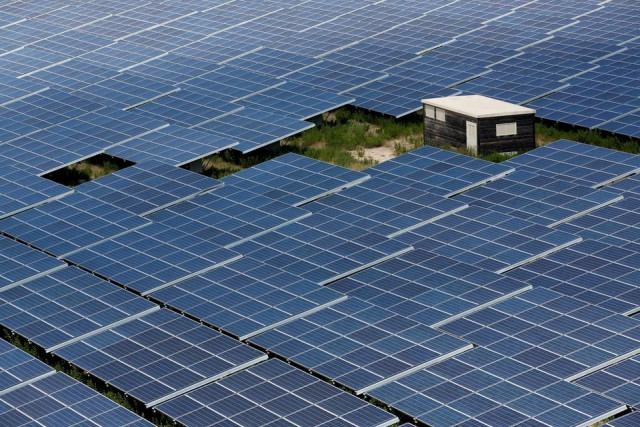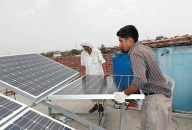Pakistan urged to expand solar, wind capacity
Experts say global practices need to be incorporated for sustainable energy transition

Experts from the energy sector have emphasised that for a sustainable energy transition, Pakistan needs to incorporate global best practices in its energy sector, especially in Variable Renewable Energy (VRE) sector related policies.
Speaking at a webinar on ‘Future directions for VRE deployment in Pakistan - A discussion on the findings of the World Bank’s VRE report’, the experts discussed prospects of grid integration and locational study conducted by the World Bank for energy sector of Pakistan, and major challenges for revised version of Indicative Generation Capacity Expansion Plan (IGCEP) 2030.
World Bank Senior Energy Specialist Oliver Knight shared various aspects of studies conducted by the World Bank on ‘Variable Renewable Energy Integration and Planning’ and ‘Variable Renewable Energy Locational Study’ with the participants.
Based on the outputs of both reports, Knight said the most optimum capacity expansion pathway for Pakistan is through increased expansion of solar and wind capacity as it will decrease the utilisation of existing generation facilities, which are no longer competitive.
He opined that achieving targets of 30% renewable energy by 2030 would require some investments in transmission capacity of Balochistan.
National Transmission and Despatch Company (NTDC) Power System Planning Manager Shahbaz Ahmad, while providing details on revised version IGCEP 2030, informed the participants that wind and solar in plan are added at around 4,000MW due to displacement of expensive thermal power plants.
Alternate Energy Development Board (AEDB) Director Policy Syed Aqeel Hussain Jafri was of view that while the policy targets dictate an increasing share of renewable energy in the energy mix, any development has to be based on the outputs of IGCEP once it is approved.
The revision of IGCEP should be carried out after every two years to incorporate the decreasing cost of technologies, he added.
Amin Lakhani, Director of Clean Energy Projects on the USAID funded Sustainable Energy for Pakistan (SEP) project, highlighted that 88% of capacity expansion in plan was due to committed projects and NTDC.
He suggested that revision should include the definitions of committed projects to those that have achieved financial closure, reducing the entry size of mega projects to facilitate the least cost optimisation, and using the RLNG price as the fuel cost for all natural gas plants.
Published in The Express Tribune, July 15th, 2021.
Like Business on Facebook, follow @TribuneBiz on Twitter to stay informed and join in the conversation.



















COMMENTS
Comments are moderated and generally will be posted if they are on-topic and not abusive.
For more information, please see our Comments FAQ